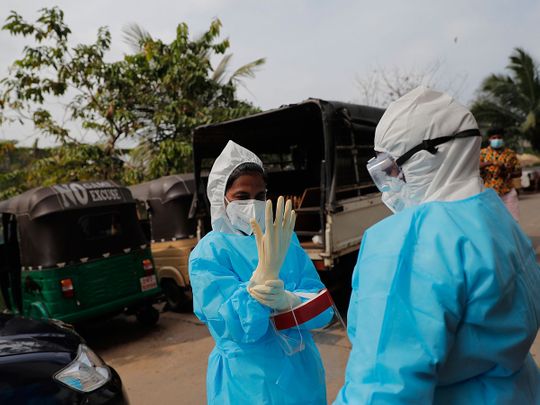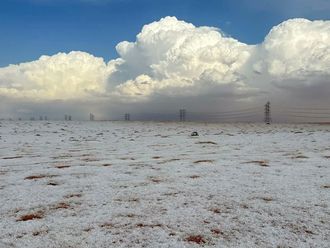
Abu Dhabi: The Secretary-General of the Muslim World League, Sheikh Dr. Mohammad bin Abdul Karim Al Issa, appreciated the response of the Sri Lankan government to a request not to cremate the bodies of Muslim COVID-19 victims, in accordance with Islamic teachings.
In a phone call with Sri Lanka’s Minister of Foreign Affairs, Dinesh Gunawardena, Al Issa affirmed that the gesture serves to strengthen the close relationship between the Muslim World League and the Sri Lankan government.
Sri Lanka’s controversial policy to cremate the bodies of coronavirus victims has outraged Muslims, for whom cremation is forbidden.
President Gotabaya Rajapaksa’s government claimed that burying deceased victims of COVID-19 could contaminate groundwater, despite World Health Organisation (WHO) guidelines that stipulate burials are safe and pose no risk during the pandemic.
Sri Lanka’s Chief Epidemiologist Sugath Samaraweera said an expert committee warned the government that burials could contaminate the island nation’s high water table.
Several Muslim and Catholic families, health professionals and religious leaders have challenged the Supreme Court’s ruling on cremations, requesting evidence that burials contaminate groundwater. The court, however, has dismissed all such petitions.
In December last year, the forced cremation of a 20-day-old infant without the consent of the family prompted nationwide anger. Both of the baby’s parents tested negative for COVID-19.
There have also been instances of cremation where authorities later acknowledged the deceased victim did not have the disease.
Such cases have not only enraged Sri Lanka’s minority groups but have also exposed the religious and ethnic fault lines in the country.
Rights activists say the Sri Lankan government has adopted various policies that discriminate against Muslim and Tamil minorities.
Last year, four UN special rapporteurs appealed to the Sri Lankan government, stating that the cremation policy violated the right to freedom of religion. They called on the government to combat attempts to instigate religious hatred and violence.
Muslims comprise about 10% of Sri Lanka’s population of 21 million, but they have been disproportionately affected by the pandemic, according to the Sri Lanka Muslim Council.








